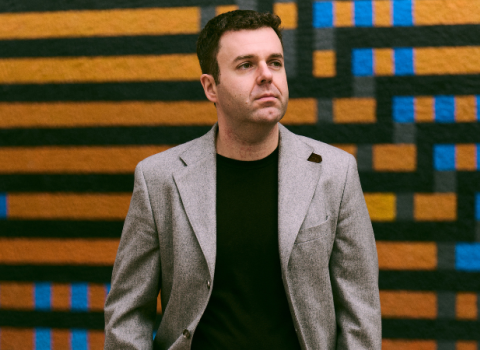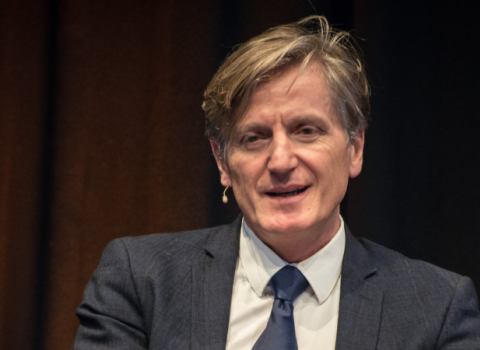European Institute of Innovation and Technology director Martin Kern says progress being made but more resources needed to finish the job
A new report which recommends significant changes to the EU’s European Institute of Innovation and Technology (EIT) should be weighed against reforms already in place since last year, says the institute’s director Martin Kern.
The European Court of Auditors (ECA), the EU’s accounting watchdog, identifies serial shortcomings at the EIT and says there should be a new legal basis and a longer grant period for EIT partners, who should be paid for performance. In addition, EIT needs more staff to oversee its activities and better monitoring and reporting processes.
The report is mostly correct Kern says. “We disagree on a few points but we accept its recommendations,” he told Science|Business.
In particular, Kern is keen to change EIT’s legal status, saying the complexity of its operations stems from the original design. “Now is a good moment to address this issue,” he said.
As auditor reports go, this one was unusually critical – and potentially damaging politically to the EIT. Indeed, the EU Commissioner responsible for the institute, Tibor Navracsics, took the precaution of publicly warning the European Parliament in February that bad news was coming. Yet the EIT’s first comment on the report published Thursday put a relatively positive spin on the affair.
The EIT’s official statement says the auditors confirmed “that the EIT is achieving its core goal of connecting business, education and research to boost innovation and entrepreneurship across Europe.”
‘Progress’ since audit
Kern said many shortcomings are being addressed. “It’s important to keep in mind the audit was completed a year and a half ago and that we have made significant progress since,” he added. The Commission will work with the EIT to implement reform, said the Commission’s spokeswoman for education Nathalie Vandystadt in an emailed statement.
Following the audit, which took place between December 2014 and June 2015, reforms have been made, including strengthening governance, better monitoring of the Knowledge and Innovation Communities (KICs), a push to widen partner participation and increased transparency, Kern said.
He added that there has been progress in increasing the number of participants, with 800 EIT partners, among them corporate giants including Siemens, Ericsson, Bayer and Philips, and research stalwarts such as Imperial College London and the Fraunhofer Institute.
“They wouldn’t be a part of the EIT if it wasn’t positive and successful,” Kern said. “Of course it took some time to get there. [We] had to set up structures, students had to go through courses… for any company to grow, it’s the normal timeframe. “
The EIT sets up and co-funds KICs, which are large consortia of industry and academics that come together to start new companies, create new products, and train young students. The five KICs specialise in information technologies, energy, climate change, raw materials and life science. Two further KICS, in sustainable food production and high-value manufacturing industry are due to launch this year.
More resources needed
The auditors say to date the KICs have produced little in terms of tangible results or impact. Kern admits past performance was variable and could be better. “Many of the teething problems are from the [early] period of the EIT,” he said.
Part of the problem is understaffing, the report says. The number of project officers at the EIT is much lower than for most other EU research grant programmes with considerable budgets. The EIT only has one project officer for each KIC, which may have an annual budget of up to €400 million.
“Given our ambition, the EIT will need more resources, especially at our headquarters, to fully implement its potential and get the impact it wants to have,” Kern said. “This is an ongoing discussion with the Commission. If the EIT is to do more…it would also need additional resources.”
Since its creation in 2008, EIT has been managed by five different directors, with Kern acting as interim director since August 2014. A new director is being recruited currently.
Fair allocation of EIT money?
The auditors note the bulk of EIT money is shared between 10 partners in each KIC, which amounts to 49 - 65 per cent of the Institute’s support. This raises the question of fair allocation, especially in cases where a partner is a member of the committee that reviews proposals and selects winning projects. “This risks creating a conflict of interest and generating a lack of trust in the KIC,” the report says.
In response Kern says new rules on good governance were put in place last year, ensuring an adequate separation between the governance of KICs and operation of business plans.
EIT money overwhelmingly flows to five countries, with the Netherlands receiving 24 per cent of all funding, Germany 15 per cent, France 13 per cent, Sweden 12 per cent and the UK 9 per cent. Amongst the EU’s 12 newest members, which joined from 2004 and 2007, only Poland, with 4 per cent and Hungary with 2 per cent, have received funding from the Budapest-based EIT.
Kern said a new EIT rule has been put in place, requiring 10 per cent of annual KIC funding to go to a special regional innovation pot to address this vast gap.
The reforms to date have been well received, said Kern. “I think the people who manage the EIT, and the Commission, are all aware of the massive improvements and success we now have. They are aware this report is a picture of the past,” he said.
Future funding
Companies and universities interviewed by the auditors said they doubt the KICs could become financially independent within fifteen years, as required by EIT rules. Between 2010 - 2014 only one KIC declared any income.
However, Kern said this was speculation, with none of the KICs near 15 years of age. “We’re not yet there. Some can be optimistic, some can be pessimistic. For us, financial sustainability is fully feasible,” he said.
New guidelines set out last year provide, “a clear framework for achieving sustainability,” Kern said. “We will reward success and progress, and where there is [none] we will take necessary action.”





 A unique international forum for public research organisations and companies to connect their external engagement with strategic interests around their R&D system.
A unique international forum for public research organisations and companies to connect their external engagement with strategic interests around their R&D system.